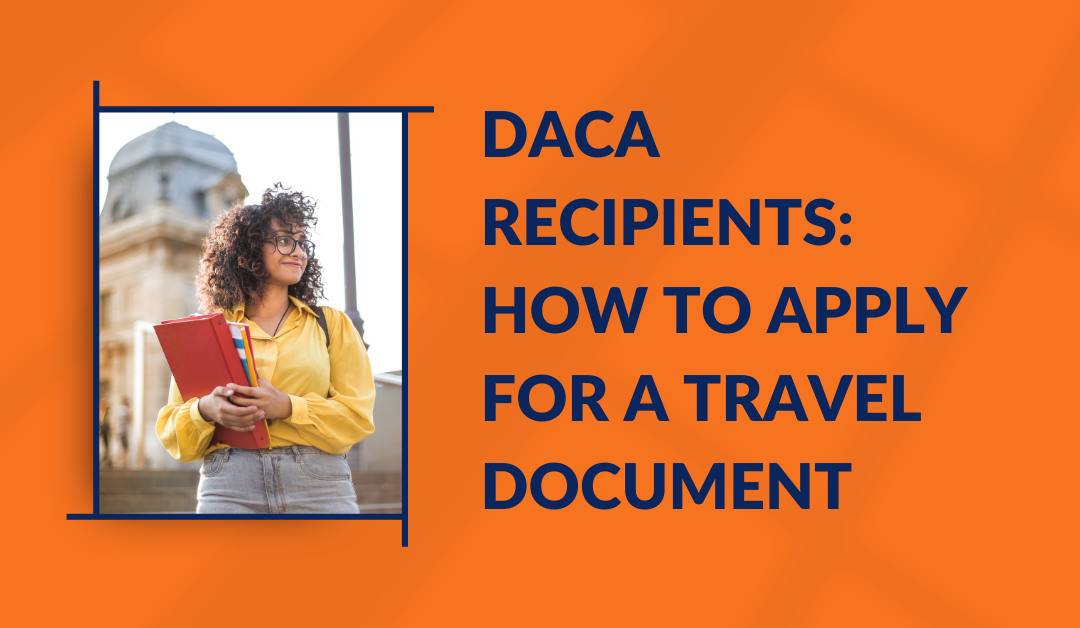With DACA and a travel document, some noncitizens may be able to leave the U.S. and return legally.
If you have applied for and received Deferred Action for Childhood Arrivals (DACA), this could be the first opportunity you’ve had in a long time to travel outside the U.S. and return legally. Something called “Advance Parole” might make it possible for you to leave the U.S. without losing your DACA status. The possibility to travel requires that you are in good status with your DACA application, have a valid passport for travel and is not automatic nor risk-free. You should consult with an experienced immigration attorney before beginning this process.
Risks of Traveling With Advance Parole as a DACA Recipient
Your DACA status is not enough by itself to allow you to leave the U.S. and be admitted back upon your return. You should not attempt to travel without first applying for and receiving an approval on your Advance Parole Document. If you leave without Advance Parole, you will likely be denied reentry and your DACA approval will be cancelled.
However, being approved for Advance Parole does not guarantee your safe return either. The Customs and Border Protection (CBP) officer whom you will meet upon your return can deny your entry if he or she thinks you are “inadmissible,” most likely for other reasons, such as, health or security reasons.
Worse yet, if you have an outstanding order of removal or deportation on your record, leaving the U.S. could be viewed as your having followed through with the deportation. You would not be allowed to return to the U.S. for many years (the exact length depends on the reason for which you were ordered deported).
Who Is Eligible to Apply for Advance Parole as a DACA Recipient
In order to be eligible for Advance Parole, you will need to show not only that you have been approved for DACA, but that you have a reason for traveling, either for:
- urgent humanitarian purposes, which include medical assistance, to attend a family member’s funeral, visiting a sick relative, or some other urgent family-related matter
- educational purposes, including taking part in a study abroad program or doing academic research, or
- employment purposes, including overseas assignments or client meetings, interviews, conferences, training, and travel needed to pursue a job with a foreign employer in the United States.
Along with your application (described next), you will need to supply authoritative documentary evidence to back up whichever of these purposes you claim.
If you are in any doubt as to whether your reason for travel is sufficient, consult an experienced immigration attorney. For what’s likely to be a flat fee, you will greatly improve your chances that your application fee won’t go to waste and you are not placed in a position in which you are unable to reenter the country.
If Your Application for Advance Parole is Granted
If USCIS approves you for Advance Parole, it will send you a document, known as Form I-512L, Authorization for Parole of an Alien into the United States. You must take the original Form I-512L with you when you leave the U.S. because you will need to show it before getting on the plane, ship, bus, or train headed back to the U.S., and to the CBP officer when you return.
Look closely at the form, because it contains the last date you can use it to return. Make sure you don’t stay outside the U.S. past that date. For more information about DACA, Advance Parole or any other types of Travel Documents, please contact our office for a consultation.

